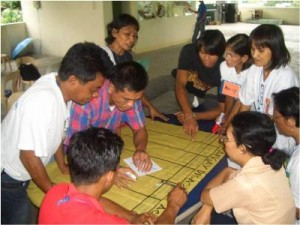 It is unfathomable how one could attempt to plan for a community without actually engaging the people of that community. Unfortunately, this is an all too common practice in developing countries throughout Latin America and other parts of the world. Urban development tends to focus heavily on the physical aspects of these places with little regard to the social dimensions that shape community life. To shift this cycle, participatory planning has to be a key facet in any urban development project.
It is unfathomable how one could attempt to plan for a community without actually engaging the people of that community. Unfortunately, this is an all too common practice in developing countries throughout Latin America and other parts of the world. Urban development tends to focus heavily on the physical aspects of these places with little regard to the social dimensions that shape community life. To shift this cycle, participatory planning has to be a key facet in any urban development project.
Participatory planning allows citizens to voice their concerns while fully engaging with local leaders and decision makers in development considerations. After all, community members are the ones most directly impacted by new infrastructure, for example, through their lived experiences. Urban planners also have to be careful that participatory planning is not manipulated by more organized factions of society or by those with political ties. What the majority wants may not necessarily be best for a community overall (think gated communities that keep some people out verses public spaces that foster interactions among various people).
Politics is inevitably a major force in shaping how urban environments are produced. As I was reading, “Revisiting Urban Planning in Latin America and the Caribbean,” I was reminded that planners, particularly those in developing countries, have a responsibility in “formulating and advocating for plans and regulations that ameliorate socio-spatial inequalities.”
Planners also have to find the right balance between the needs of present residents against those of future populations. The people that participate in a planning process today may not necessarily be the same demographic group that benefits from these changes later on. At the same time, too much emphasis should not be placed on future populations who may never come. The outcomes of a true participatory planning process has to be grounded enough that it can actually yield results in the short term while being flexible enough to accommodate changing community needs over time.
Participatory planning has the unique ability to empower individuals to legitimize the planning process by giving the community ownership in plan development and implementation. It also ensures that planning is inclusive, transparent and tailored to specific community needs.


About The Author: Vanessa L.
More posts by Vanessa L.